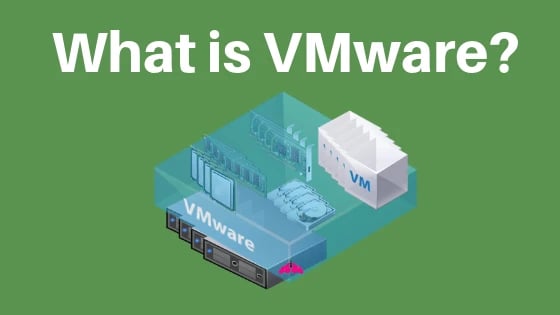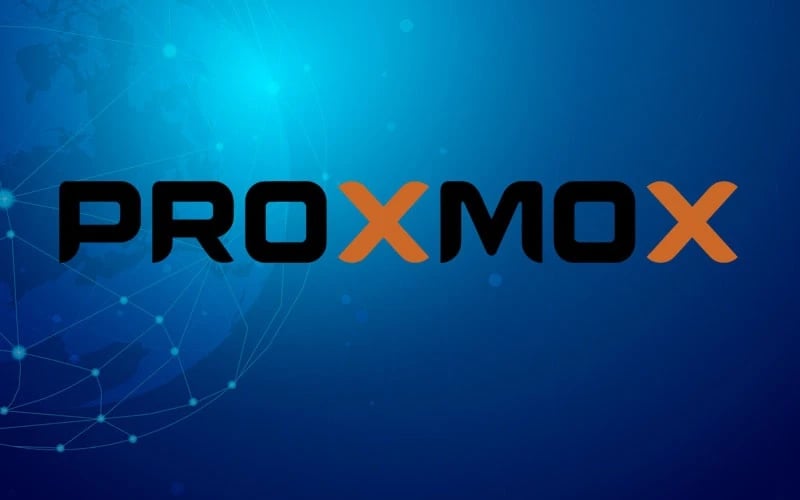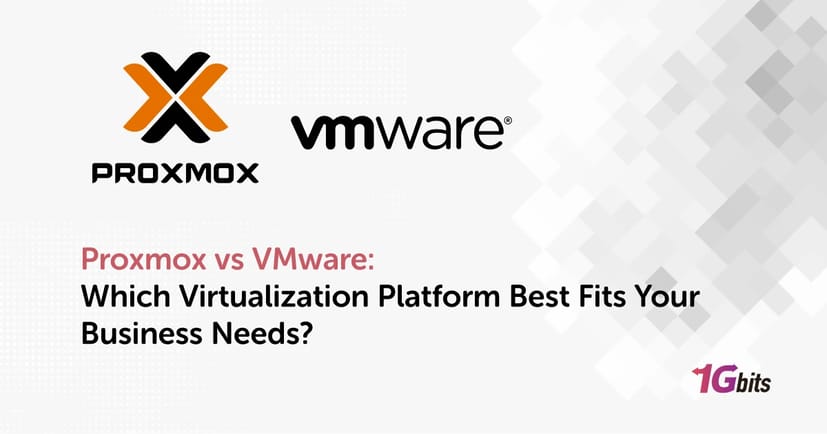When it comes to virtualization platforms, choosing the right one can significantly impact performance, scalability, and cost. In the debate of Proxmox vs VMware, understanding their differences is essential to making an informed decision. Proxmox vs VMware comparisons often focus on features like scalability, resource management, and ease of use. For businesses migrating from VMware to Proxmox or transitioning Proxmox to VMware, weighing their benefits becomes critical. While VMware excels with enterprise-grade features, Proxmox containers vs VM offers flexibility for lightweight deployments. Considering VMware vs Proxmox, factors such as licensing costs and open-source advantages shape the conversation. But what is Proxmox, and how does it compare with traditional solutions? Exploring VMware advantages and disadvantages alongside Proxmox vs VirtualBox can clarify which platform suits various needs. Whether you’re evaluating Proxmox VMware integration or debating VirtualBox vs Proxmox, this guide breaks down everything you need to know. If You need VMware Dedicated server, visit VMware Dedicated Server.
What is VMware?
VMware is a leading virtualization platform widely used in enterprises for its robust infrastructure and comprehensive suite of features. Known for its flagship product, VMware ESXi, it enables users to create and manage multiple virtual machines (VMs) on a single physical server, optimizing hardware utilization and scalability. VMware’s ecosystem includes tools like VMware Workstation for desktop virtualization and vSphere for advanced data center management, making it a preferred choice for businesses seeking enterprise-grade solutions.
In discussions of Proxmox vs VMware vs Hyper-V, the two platforms are often compared for their distinct advantages. While VMware is known for its seamless integration and proprietary features, Proxmox stands out for its open-source flexibility and affordability. When evaluating Proxmox vs VMware ESXi, VMware excels in enterprise-grade support, but Proxmox offers a simplified approach with container-based virtualization alongside VMs. For those migrating from VMware to Proxmox or considering a shift Proxmox to VMware, understanding these platforms' capabilities is key.
In terms of Proxmox vs VMware performance, VMware often delivers consistent results in large-scale deployments, while Proxmox is praised for its lightweight efficiency. Comparing Proxmox vs VMware vs VirtualBox, VMware targets enterprise environments, Proxmox balances enterprise and developer needs, and VirtualBox caters to desktop users. The Proxmox vs VMware pricing analysis reveals that VMware’s licensing fees can be significant, whereas Proxmox is free and open-source, reducing overall Proxmox vs VMware cost.

Examining Proxmox vs VMware features, VMware offers advanced tools for high availability and fault tolerance, but Proxmox’s built-in support for containers provides an edge for lightweight virtualization. A Proxmox vs VMware a quick comparison highlights that VMware’s extensive features can sometimes overwhelm small-scale users, whereas Proxmox keeps things simple. The difference between VMware and Proxmox becomes evident when comparing enterprise tools, with VMware leading in scalability and Proxmox in cost efficiency.
Comparing Proxmox vs vmware vs esxi workstation shows that VMware Workstation is ideal for desktop environments, while Proxmox focuses on server virtualization. The Proxmox vs VirtualBox performance discussion positions Proxmox as a robust server solution and VirtualBox as a simpler desktop alternative. Considering Proxmox vs VMware benchmark tests, VMware excels in enterprise workloads, while Proxmox suits versatile applications. Overall, a Proxmox vs VMware comparison helps clarify the choice based on cost, features, and performance needs. For more details, read What is VMware. If You need VMware alternatives, read VMware alternatives article.
What is Proxmox?
Proxmox is an open-source virtualization platform that combines container-based virtualization (LXC) and full virtualization (KVM) into a single, easy-to-manage solution. Designed for flexibility and cost efficiency, it enables administrators to create and manage virtual machines (VMs) and containers on the same server. Proxmox Virtual Environment (VE) includes built-in features like a web-based management interface, high availability clustering, live migration, and backup tools, making it a popular choice for small-to-medium-sized businesses and developers.
When you compare Proxmox vs VMware, Proxmox often stands out for its open-source nature and affordability. Unlike VMware, which requires paid licenses, Proxmox offers a free solution with optional paid enterprise support. This makes Proxmox appealing to organizations looking to reduce virtualization costs without sacrificing functionality. In the debate of Proxmox vs VMware, Proxmox is often preferred by those who value simplicity and open-source flexibility, while VMware excels in enterprise-grade solutions.
A critical consideration in Proxmox vs VMware ESXi performance is the workload type. VMware ESXi typically delivers optimized performance for large-scale, enterprise environments, leveraging its mature ecosystem and advanced features. On the other hand, Proxmox is lightweight and excels in resource-efficient scenarios, making it a better choice for small-to-medium deployments or development environments.
Proxmox’s support for containers sets it apart in the Proxmox vs VMware discussion. With integrated LXC technology, Proxmox allows lightweight and efficient container management alongside traditional VMs, enabling greater flexibility. VMware, while robust in VM management, lacks built-in container support, requiring additional tools like VMware Tanzu to achieve similar functionality.
When comparing Proxmox vs VMware pricing, Proxmox’s free licensing model is a significant advantage. VMware’s comprehensive features come at a higher cost, with licensing fees that can increase with deployment size. For businesses seeking an open-source alternative, this cost difference can be a deciding factor.
In terms of Proxmox vs VMware features, Proxmox offers an intuitive interface, integrated clustering, and support for various storage options. VMware, by contrast, provides an extensive suite of tools for enterprise-level needs, including advanced fault tolerance and integration with other VMware products.
Overall, when you compare Proxmox vs VMware, Proxmox is ideal for those seeking a cost-effective, flexible solution, while VMware remains the go-to choice for enterprises prioritizing scalability and robust support.
Vmware advantages and disadvantages
VMware is a widely recognized virtualization platform, especially popular in enterprise environments. It offers a robust feature set and unparalleled scalability, but its costs and complexities can be significant considerations. To better understand VMware's strengths and weaknesses, this section provides a detailed breakdown in a table format. Throughout this analysis, we’ll also examine VMware in the context of Proxmox vs VMware, highlighting how these platforms compare.
|
|
|
||||||
|
|
|
||||||
|
|
|
||||||
|
Integration |
|
|
||||||
|
|
|
||||||
|
|
|
||||||
|
|
|
||||||
|
|
VMware’s licensing and tiered options can be confusing. For smaller teams or those new to virtualization, this complexity often makes Proxmox a more attractive choice. |
Advantages of VMware in Detail
-
Performance
VMware’s ability to handle large-scale, enterprise workloads is unmatched. It is specifically optimized for performance, with its ESXi hypervisor delivering consistent results in resource-intensive scenarios. Proxmox vs VMware ESXi performance comparisons often highlight VMware’s superior stability in high-demand environments. -
Comprehensive Features
VMware provides a range of advanced tools that support resource allocation, failover protection, and workload optimization. These features are critical for enterprises managing extensive infrastructures, giving VMware a clear lead in Proxmox vs VMware features comparisons. -
Ease of Integration
VMware integrates effortlessly with hybrid cloud setups and other enterprise solutions, offering unmatched versatility. In Proxmox vs VMware discussions, this seamless integration is often cited as a reason enterprises favor VMware. -
User-Friendly Management
VMware’s tools, such as the vSphere Client and Workstation Pro, make it easy to manage virtual environments. Compared to Proxmox’s more technical interface, VMware is more accessible for administrators new to virtualization. -
Support Infrastructure
VMware’s professional support and extensive documentation provide peace of mind for users managing critical systems.
Disadvantages of VMware in Detail
-
High Costs
Licensing fees are among the most frequently mentioned drawbacks of VMware. In the Proxmox vs VMware pricing debate, Proxmox’s free and open-source nature often makes it the better choice for budget-conscious users. -
Complexity
VMware’s vast array of options and features can be daunting for smaller teams or those unfamiliar with enterprise-grade tools. -
Resource Intensity
While VMware delivers high performance, it requires more resources compared to lightweight alternatives like Proxmox. This is evident in Proxmox vs VMware performance benchmarks, where Proxmox often proves more efficient in smaller environments. -
Licensing Limitations
Some of VMware’s most attractive features require additional licenses, increasing costs and complicating the decision-making process.
Understanding VMware’s advantages and disadvantages helps clarify its ideal use cases. While VMware is unparalleled for large enterprises needing scalability and advanced features, its high costs and complexity may not suit smaller teams. In the Proxmox vs VMware comparison, VMware stands out for enterprise environments, while Proxmox shines in cost-sensitive and flexible setups.
Pros and Cons of Proxmox

Proxmox is a powerful open-source virtualization platform known for its flexibility and cost-effectiveness. It competes directly with VMware in many areas, offering unique benefits and some limitations. This section explores the pros and cons of Proxmox in a structured manner, with a detailed table summarizing its features. The discussion will also highlight comparisons like Proxmox vs VMware to provide clarity on how Proxmox stands out or falls short.
|
Aspect |
|
Cons |
||||||
|
|
|
||||||
|
|
|
||||||
|
|
|
||||||
|
|
|
||||||
|
|
|
||||||
|
Scalability |
|
|
||||||
|
|
Lack of guaranteed, enterprise-grade professional support compared to VMware. |
Advantages of Proxmox in Detail
-
Cost-Effectiveness
Proxmox is completely free and open-source, which is a significant advantage in the Proxmox vs VMware cost debate. Unlike VMware’s licensing model, Proxmox users can deploy and scale their infrastructure without worrying about high fees. -
Flexibility
Proxmox supports both virtual machines (KVM-based) and containers (LXC), making it versatile for various workloads. This dual approach allows administrators to choose between Proxmox containers vs VM, depending on their requirements. -
Ease of Management
The Proxmox Web GUI simplifies the management of VMs, storage, and clusters. While it may not have the polish of VMware’s vSphere, it is user-friendly for most administrators. -
Performance
Proxmox is lightweight, ensuring efficient use of resources, particularly in small-to-medium setups. This makes it a strong contender in Proxmox vs VMware performance comparisons, especially for non-enterprise environments. -
Built-In Features
Proxmox includes essential features like snapshots, backups, and clustering without additional costs. These tools are often premium add-ons in VMware, giving Proxmox a competitive edge in the Proxmox vs VMware features discussion. -
Community Support
Proxmox boasts an active community, with forums, tutorials, and documentation to help users troubleshoot and optimize their setups.
Disadvantages of Proxmox in Detail
-
Limited Enterprise Features
While Proxmox includes robust features, it lacks some advanced capabilities like VMware’s fault tolerance and distributed resource scheduling (DRS). This limitation is often highlighted in Proxmox vs VMware ESXi performance comparisons. -
Scaling Challenges
Proxmox can scale well for small and mid-sized environments, but for very large enterprises, it may require more manual configuration and additional expertise compared to VMware’s streamlined tools. -
User Interface Limitations
Although functional, the Proxmox Web GUI isn’t as polished as VMware’s management tools, which can be a drawback for administrators accustomed to VMware’s user experience. -
Professional Support
While community support is strong, Proxmox lacks guaranteed, enterprise-grade professional support like VMware’s. This can be a significant factor in Proxmox vs VMware pricing comparisons, as some organizations value the security of paid support options. -
Integration Complexity
Proxmox integrates with various tools but often requires more manual setup than VMware, especially in enterprise environments where seamless integration is crucial.
Proxmox is an outstanding open-source alternative to VMware, offering flexibility, cost savings, and essential features suitable for most use cases. However, for enterprises requiring advanced functionality, scalability, and professional support, VMware may still hold the advantage. The Proxmox vs VMware debate ultimately depends on your organization’s needs, budget, and expertise. For those prioritizing cost-effectiveness and open-source solutions, Proxmox remains a strong contender.
Similarity between VMware and Proxmox
VMware and Proxmox are both popular virtualization platforms offering robust solutions for managing virtualized environments. Despite their differences in licensing models and target audiences, they share several core features that make them reliable choices for virtualization. Below is a detailed, section-by-section explanation of their similarities, represented in both tables and bullet points for clarity.
|
VMware |
|
||||||
|
|
|
||||||
|
|
|
||||||
|
|
|
||||||
|
|
|
||||||
|
|
|
||||||
|
|
Supports importing and exporting VMs. |
1. Virtualization Capabilities
-
Both VMware and Proxmox support virtualization through hypervisors.
-
VMware uses ESXi, while Proxmox relies on KVM (Kernel-based Virtual Machine).
-
Both platforms ensure efficient hardware utilization and support various operating systems.
2. Resource Management
-
Both platforms provide resource management tools for allocating CPU, RAM, and storage to virtual machines.
-
Administrators can prioritize resources to ensure optimal performance for critical applications.
3. Clustering for High Availability
-
VMware and Proxmox both allow clustering of multiple nodes to enhance availability and redundancy.
-
Clustering ensures services remain operational even if one node fails.
4. Backup and Snapshots
-
Both platforms support snapshot creation and backup of virtual machines for disaster recovery.
-
These features minimize data loss during updates or unexpected failures.
5. Advanced Networking
-
VMware and Proxmox enable advanced network setups, including virtual switches and VLANs.
-
Both platforms support secure, efficient communication between virtual machines.
6. Cross-Platform VM Support
-
Virtual machines from other platforms can be imported into both VMware and Proxmox.
-
This feature allows administrators to migrate workloads seamlessly.
While Proxmox vs VMware often emphasizes their differences, their similarities highlight why both are considered reliable virtualization platforms. They excel in virtualization, resource management, clustering, and network configuration, making them strong choices for diverse environments.
Proxmox vs Vmware: Main Diffrences

When it comes to virtualization, two names frequently come up: Proxmox and VMware. Both provide excellent tools for managing virtualized environments, but they have distinct features, use cases, and pricing models. In this guide, we will compare Proxmox and VMware in detail to help you understand their main differences. If You want to read comparing KVM and Proxmox, read KVM vs Proxmox.
1. Licensing and Cost
|
|
|
||||||
|
|
|
||||||
|
|
|
||||||
|
|
|
||||||
|
|
|
· Proxmox offers a completely free version that includes most features, but enterprises can purchase a subscription for premium support.
· VMware provides a free version of ESXi but with restrictions (such as a limit on RAM usage). Advanced features (e.g., vMotion, High Availability) require a paid version.
2. Hypervisor Type and Virtualization Technology
|
Feature |
|
|
||||||
|
|
|
||||||
|
|
|
||||||
|
|
|
· Proxmox supports KVM for full virtualization, allowing you to run multiple operating systems as virtual machines. It also supports LXC containers, which are more lightweight and efficient compared to VMs.
· VMware uses ESXi as its bare-metal hypervisor, which provides robust VM support but lacks native container support (though it can be used with VMware Tanzu for container orchestration).
3. Management Interface
|
|
|
||||||
|
Management Tool |
Proxmox Web UI, CLI, and REST API |
vSphere Web Client, vCenter, CLI |
||||||
|
Ease of Use |
User-friendly interface with integrated tools |
Professional-grade interface but can be complex |
||||||
|
Mobile App |
No official mobile app |
VMware vSphere mobile app available |
· Proxmox features an intuitive web-based management interface, which makes it easy for users to manage their VMs and containers.
· VMware offers vCenter for centralized management of ESXi hosts and VMs. The vSphere interface is powerful but can be complex for new users, especially in large-scale environments.
5. Features and Capabilities
|
|
|
||||||
|
Clustering |
Yes, clustering for multiple hosts |
Yes, clustering via vSphere HA |
||||||
|
Live Migration |
Yes, with shared storage |
Yes, with vMotion (requires Enterprise version) |
||||||
|
Backup and Restore |
Built-in backup system, snapshot support |
Advanced backup features with vSphere and 3rd-party tools |
||||||
|
High Availability |
Yes, with Proxmox VE Cluster and shared storage |
Yes, with vSphere HA and DRS (requires paid version) |
||||||
|
Storage Options |
ZFS, LVM, Ceph, NFS, iSCSI, and more |
VMware vSAN, NFS, iSCSI, vVols (requires licenses for advanced options) |
-
Proxmox includes powerful built-in features such as high availability (HA), live migration, and backup tools. It supports advanced storage options like ZFS and Ceph.
-
VMware offers vMotion for live migration and vSphere HA for automatic failover. However, many advanced features require a paid license.
6. Virtual Machine and Container Management
|
|
|
||||||
|
VM Creation |
Quick creation, supports ISO images, templates |
vCenter and ESXi, uses templates or ISO images |
||||||
|
Container Support |
Yes, with LXC containers |
No native container support (requires external tools) |
||||||
|
Storage Efficiency |
Supports thin provisioning, ZFS for storage efficiency |
Thin provisioning with VMware storage options |
· Proxmox supports both VMs and containers, making it a versatile choice for those who need container-based workloads in addition to full virtual machines.
· VMware is VM-centric and does not have built-in container support, although it can integrate with VMware Tanzu for container orchestration.
7. Performance and Scalability
|
Feature |
Proxmox |
VMware |
|
Resource Allocation |
Dynamic allocation of resources for VMs and containers |
Advanced resource management with vSphere and DRS |
|
Scalability |
Scales well for small to medium environments, supports clusters |
Highly scalable, suited for enterprise environments |
|
Performance |
Generally good, but can be less optimized for large-scale operations |
High-performance, enterprise-grade optimizations |
· Proxmox offers great performance for smaller to medium environments and scales well with clusters.
· VMware is optimized for large, enterprise-level environments and can handle high workloads effectively.
8. Community Support vs Enterprise Support
|
|
|
||||||
|
Community Support |
Active open-source community support |
VMware community forums and documentation |
||||||
|
Enterprise Support |
Subscription-based enterprise support |
Comprehensive enterprise support with paid plans |
||||||
|
Documentation |
Detailed, user-contributed docs and resources |
Comprehensive official documentation |
· Proxmox provides community support for free users and offers enterprise support with a subscription.
· VMware has extensive enterprise-level support options, but it comes at a higher cost compared to Proxmox.
9. Use Case and Ideal Environment
|
Feature |
Proxmox |
VMware |
|
Best For |
Small to medium-sized businesses, home labs, open-source enthusiasts |
Large enterprises, critical applications, VMware-centric infrastructure |
|
Typical Use Case |
Virtualization with VMs and containers on a budget |
Advanced virtualization with enterprise features |
|
Cost Consideration |
Cost-effective, ideal for users on a budget |
Expensive, ideal for companies with large-scale infrastructure needs |
· Proxmox is ideal for users looking for a low-cost, feature-rich solution for smaller virtualized environments.
· VMware is best suited for large-scale enterprises where features like vMotion, vSphere HA, and advanced resource management are crucial.
10. Security and Updates
|
|
|
||||||
|
Role-based access control, firewall, two-factor authentication |
|
||||||
|
|
|
· Proxmox offers essential security features like role-based access control (RBAC) and two-factor authentication.
· VMware provides advanced security features but requires ongoing maintenance via vCenter and paid support plans for updates.
Both Proxmox and VMware are powerful virtualization platforms, but they cater to different user needs. Proxmox is a more cost-effective and flexible solution for small to medium businesses or home labs, while VMware is better suited for large enterprises that require advanced features and scalability. Ultimately, the choice between Proxmox and VMware depends on your specific requirements, budget, and the scale of your infrastructure.
Conclusion
In conclusion, choosing between VMware and Proxmox largely depends on your specific needs, budget, and the scale of your virtualization environment. Proxmox is an excellent choice for small to medium-sized businesses, home labs, and open-source enthusiasts, offering a cost-effective solution with powerful features like KVM virtualization and LXC containers. Its free version, combined with optional enterprise support, makes it accessible for those on a budget. On the other hand, VMware excels in large enterprise environments where advanced features such as vMotion, vSphere HA, and comprehensive scalability are crucial. While it comes with a higher cost, VMware’s robust support and enterprise-level optimizations make it the ideal choice for businesses requiring high availability and performance at scale. Ultimately, if you're looking for flexibility and lower costs, Proxmox is a great option, while VMware remains the go-to solution for enterprises needing extensive features and premium support.
People also read:










